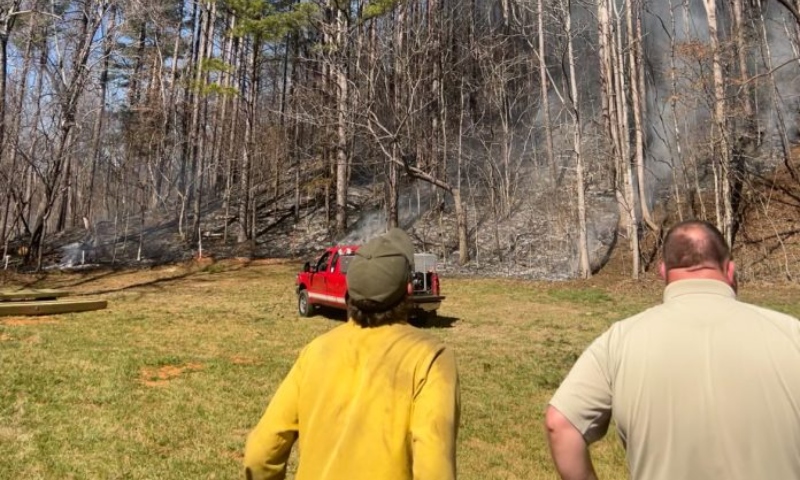County copes with fire danger; burn ban still in effect
Published 11:59 am Friday, March 14, 2025
|
Getting your Trinity Audio player ready...
|
POLK COUNTY—Several wildfires have caught in Western North Carolina over the past few weeks, including the 3910 Fire in Polk County, and this has made effective fire management and prevention a priority to local officials and residents.
This local fire, which was contained on March 7 through the hard work of local agencies and teams from outside the county, burned 619 acres.
Due to conditions, Polk County was placed under a burn ban on March 2. That ban is still effective, according to Emergency Management Director and Fire Marshal Bobby Arledge.
Trending
A burn ban prohibits outdoor burning, whether it is yard debris, trash, or even a recreational campfire. Burn bans are in place to help keep wildfires from occurring.
“This year is a totally different fire season that we have seen over the years,” Arledge said. “There is a tremendous amount of debris that has fallen due to Hurricane Helene. This makes it more difficult to fight these fires due to having to cut our way around debris to build fire containment lines. The fallen debris also makes fires burn hotter because there is a lot more to burn now than we would normally see.”
The burn ban in Polk County restricts fire from within 100 feet of a structure, because a local fire marshal, such as Arledge, only has jurisdiction within this perimeter. Any larger ban would need to come from the state. Overall bans would be put in place by the State Forest Service, who determines the risk and brings it to state leadership.
Here are two things to know about fire: If you start a fire and it escapes onto others’ property, you are liable for the damages caused by your fire. You could also be ticketed or fined for letting a fire escape. Also, if it doesn’t grow in nature, don’t burn it. Items like leaves, grass, and sticks are allowed, while trash, paper, cardboard, and tires are some items that can’t be burned.
“If you are going to burn, please follow the safety precautions,” Arledge said.
Those precautions include obtaining a burning permit, making sure you are burning only approved materials, checking to make sure there isn’t a burning ban in place, never leaving a fire unattended, extinguishing the fire before leaving it, always having some type of extinguishing agent near the fire, avoid burning when there has been limited rainfall or if there are high winds, consulting your local fire department or fire marshal’s office to make sure it is safe to burn, and always dialing 9-1-1 if you have any concerns a fire may get out of control.
Trending
“Please think about the firefighters and other emergency personnel that are put in harm’s way by these fires,” Arledge said. “Please be as cautious and safe as possible when burning.”






